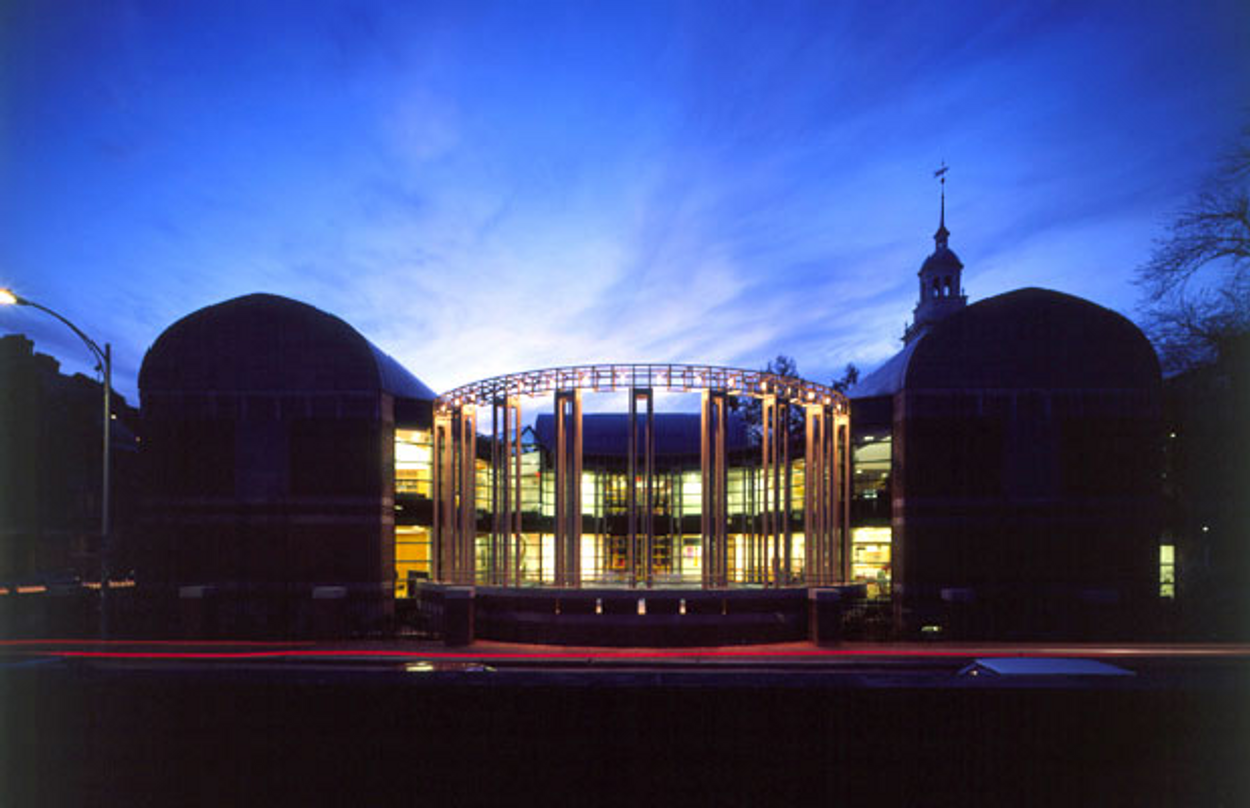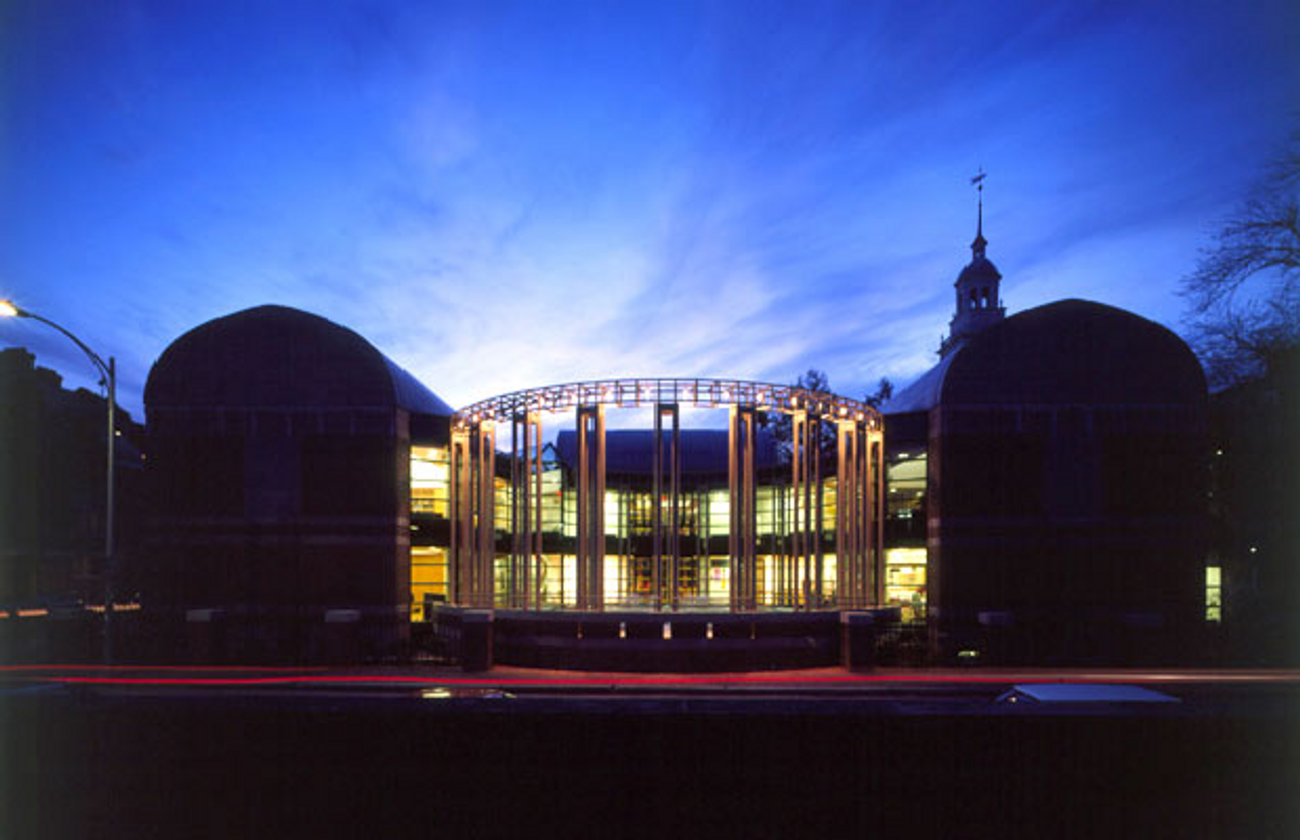In Praise of ‘Censorship’ at Hillel
Why we shouldn’t invite anti-Zionists to dinner




The debate about changing the guidelines governing who may and may not participate in discussions of Israel at college Hillels is an interesting one even for someone distant from American campuses, as I am, not because of the guidelines themselves but rather because the discussion provides an opportunity to investigate the use, abuse and general misunderstanding of words.
The desire to include anti-Zionist participants in the Jewish discussion of Israel has been presented in terms of support for freedom of speech on one side, and for censorship on the other. The campaign is advocating for something it calls “Open Hillel.” Who wants to be against openness and freedom of speech? Not me. Who wants a “Closed Hillel”? But I think we can agree that these formulations are simplistic. Would a Hillel be accused of censoring debate if it declined to host, say, a sympathetic talk about eugenics? Would a synagogue be considered closed-minded if it decided it would rather not invite, for example, a speaker who believes Judaism is a retrograde religion that should be banned by law? Or, to put it differently, if you think I’m a jerk, am I closed-minded if I don’t want to invite you to dinner?
It seems to me that if we penetrate to the heart of the matter we find the following question: Does the principle of freedom of speech require Jewish people to host debate about the destruction of the world’s largest Jewish community?
Informed criticism of Israeli policy is fine, obviously; I engage in quite a bit of it myself. Perhaps Hillel’s guidelines could be adjusted to better enable this – others are far more qualified than I to say. But if we’re talking about opening the door to “anti-Zionism,” and at least some of the most vocal students are, we’re talking about something very different.
“Anti-Zionism” is not a theoretical position, and Zionism is not a morality play. Israel is a real country full of real people, most of whom have nowhere else to go. Anti-Zionism in 2013 is the belief that this country should not exist – that it should, in some way, be made not to exist. It means that more than 6 million Jews who have found a refuge and a home here will have that home taken away, that a century of Hebrew culture will end, and that the entire Jewish people will go back to living by the whims of Muslim and Christian majorities. That I am a liberal and take a dim view of many of the policies of my government does not in the least muddy that understanding.
It is important, in other words, to be clear what we’re talking about when we say “anti-Zionist.” As a correspondent here for many years, I have had enough contact with activists involved in anti-Israel campaigns to understand that many or most of them are not concerned with returning Israel to its 1967 borders, but rather answer to this description. These people certainly do not have nuclear bombs, and they use words like “inclusiveness,” “democracy,” and “rights” in ways that scramble the radar of liberals in the West. But their goal is to destroy the state of Israel, and they are generally willing to tell you that if you are listening.
“Censorship” is a word largely devoid of meaning, one trotted out for use because no one wants to support it, just like “openness” is a word used because no one wants to oppose it. The fact is that not only do we tolerate censorship every day, we expect it. We censor racists, for example, and other views considered beyond the pale. The idea that the world’s only Jewish country should be dismantled and its people once again rendered homeless – that’s “anti-Zionism,” however skillfully it cloaks itself – is a morally repugnant idea linked to other morally repugnant ideas better left unmentioned. Let’s leave aside the question of whether this should be discussed anywhere at all. For a Jewish community to decline to make room for this idea is as understandable and healthy as it would be for an African-American community to decline to devote an evening to debating the merits of the Klan.
Hillel Houses exist to provide a safe intellectual space for young Jews on campus. Campuses being what they are, spaces like that are rare. They are under pressure, as Israel is, from politically acute and aggressive opponents who are not in the least interested in “openness” and don’t practice it themselves, but who understand that the Jewish weakness for words like that is an opportunity. Hillel should keep that door firmly closed.
Follow-up: More Praise of “Censorship” at Hillel
***
Matti Friedman is the author of The Aleppo Codex: In Pursuit of One of the World’s Most Coveted, Sacred and Mysterious Books, which won the 2014 Sami Rohr Prize. He lives in Jerusalem, and has reported for the Associated Press, the Jerusalem Report, and the Times of Israel.
Matti Friedman is a Tablet columnist and the author, most recently, of Who by Fire: Leonard Cohen in the Sinai.